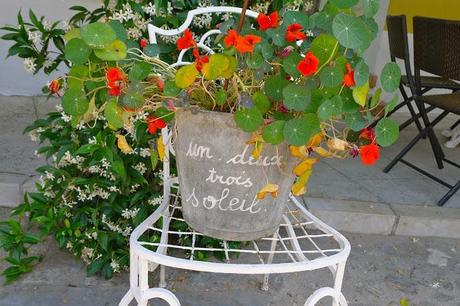
Restaurant Beau Séjour,
Gorbio
Le Teacher: "... And don't forget: Say 'Bonjour' whenever you enter a public place. Say it as many times as it takes, five, ten, twenty times a day. A big American smile won't cut it. Say 'Bonjour' first to get help in France, or be prepared to deal with the consequences!"
Le Student: "The consequences? What consequences? Oh, right. The French HATE the Americans, right?"
Le Teacher: "The French do not hate the Americans. The French hate anyone who does not say 'Bonjour' before asking a question. That includes other French people."
Le Student: "So, first I say 'Bonjour.' At that point, they KNOW I am an American. So I might as well continue in English, right?"
Le Teacher: "Not if you expect an answer. How about trying one of the short questions we have been practicing for the last three hours? 'Je cherche...' 'Où est...?' Or, if you must, 'Vous parlez anglais?'"
Le Student: "I can't take this anymore. Why did I sign up for this class again? And on a Saturday morning?!"
Le Teacher: "Sorry. You might as well get used to lousy customer service before you land in Paris. No refunds!"
(...)
C'est la rentrée, and in a few days, this French teacher will be happily reunited with her [adult] students. The highlight of the fall teaching season will be, as it has been for the last ten years, the travel workshops I teach at the local community college: Two of my most popular programs are: Survival French for the Traveler and When in Paris, do as the Parisians do.
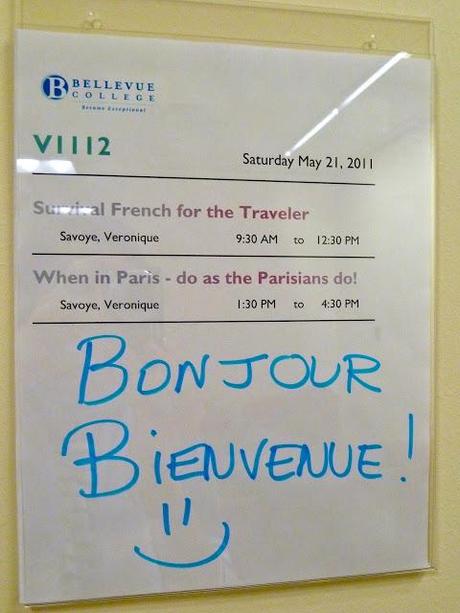
(Notice the warm welcome to entice workshop participants in...)
My students are brave people. They spend their money (and three to six hours during a busy weekend,) on non-credit travel workshops to LEARN more about the French, their language and culture before they actually board that big airplane at Seatac airport. Brave, and open-minded too. I try not to scare them, but I want them to be prepared, so I throw a lot of important cultural tidbits at them ("The French love their language so much they use taxpayers' money to finance a bunch of old people named 'The Immortals'(1) whose main mission in life is to find an instant French translation for all foreign words entering the French language.") Then I teach them three hours' worth of essential words and phrases to help them survive during their trip ("Où sont les toilettes, s'il vous plaît?' "Je cherche Starbucks..." "Je voudrais un Kir Royal, s'il vous plaît!")
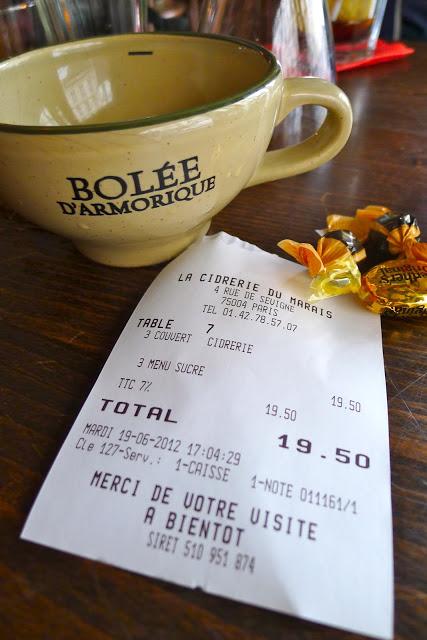
Being mindful of not overtipping...
(A 15% service charge is always included in French eateries)
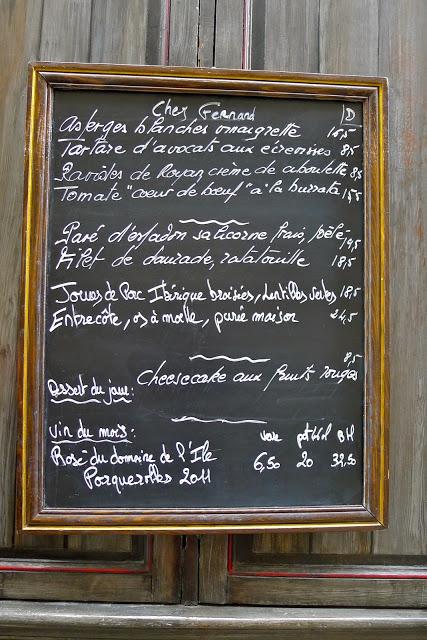
Deciphering French menus...
This is the boot-camp version of your French conversation class. Students laugh (a lot;) learn (hopefully;) and they leave the classroom energized but exhausted and ready to pop in some Advil.
I do not sugar coat it. The take-no-prisoners post I wrote a while back about traveling in France is mandatory reading before joining the class. My students leave prepared. They know the importance of greetings in French life. They know a French meal will likely start with the age-long "apéritif" ritual but may end with "un café gourmand" or "un trou normand," (with very different outcomes.) They realize customization, substitutions, and returns are not popular concepts in my homeland. They learn how to line up like the French (Stick to the guy in front of you so people won't try to cut you off.) They learn that "Cool!" and "Sympa!" (great, nice) are compliments, while "Quel beauf!" (a loser,a person with questionable taste) is not. They can get rid of pushy sales people with a nonchalant: "Je regarde, merci!" (I am looking, thank you!) They use "Ceci, s'il vous plaît..." (This, please...) whenever they do not know what something is called. They understand the waiter will not bring the check unless they ask (beg?) for it. They learn about the elasticity of French time. P.r.e.p.a.r.e.d. Or so I thought...
As I was going through hundreds of photos I took while traveling in France this summer, I noticed traditional (even mundane) sights found commonly in my homeland. Over the years, I have made a point of introducing my students to some of them during the travel workshops. For example, they know that every French village, or town, has one of these...
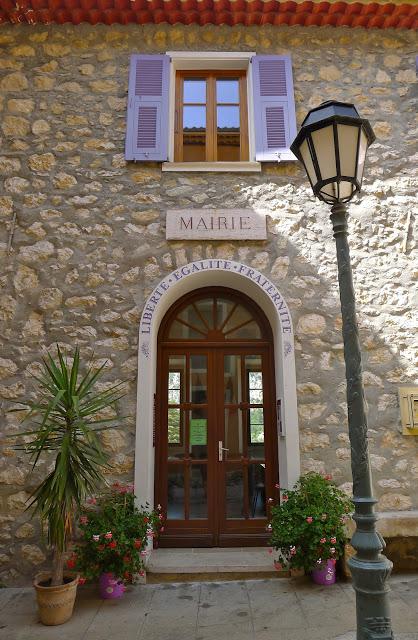
La Mairie (city hall)
Gorbio
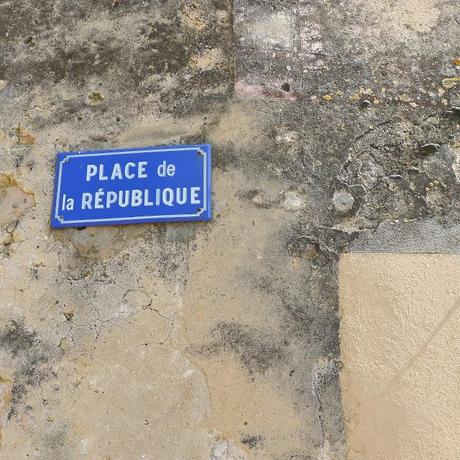
The main square...
They recognize basic words...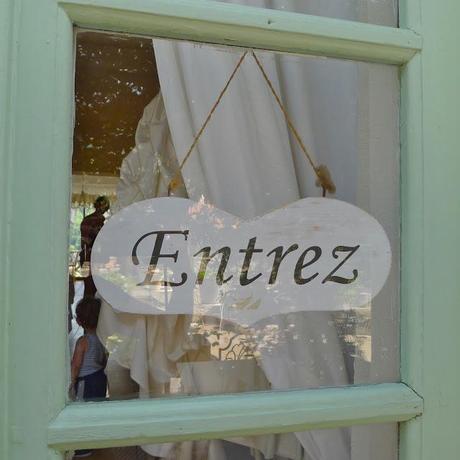
Please, come in...
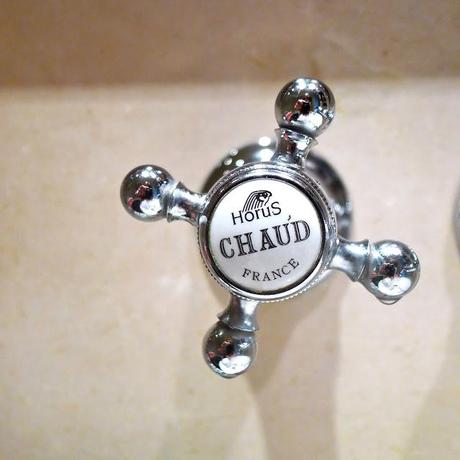
Hot...

Cold...
Some signs are self-explanatory and easy to guess...
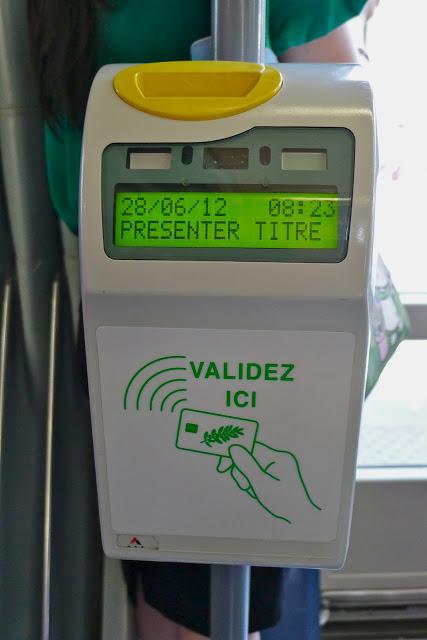
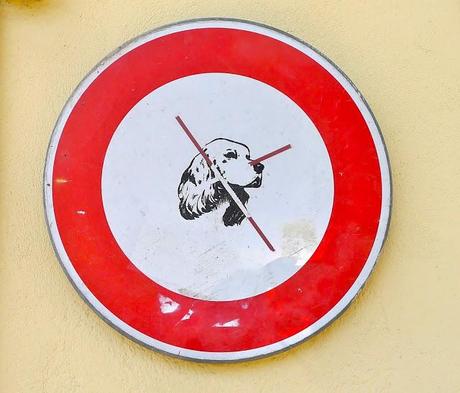
... while others are trickier. Some cultural background comes in handy to decipher them...

Les Soldes (sales) are government-regulated
and only happen twice a year...
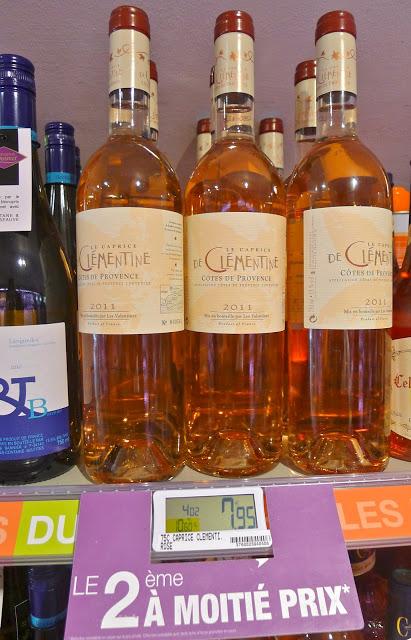
Good wine can be so cheap in France...
even cheaper when the second bottle is 50% off...
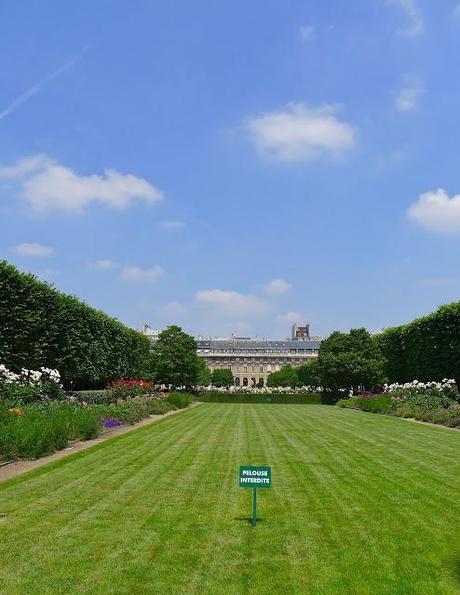
It is prohibited to step on the grass in many Parisian gardens, such as
the Palais Royal...
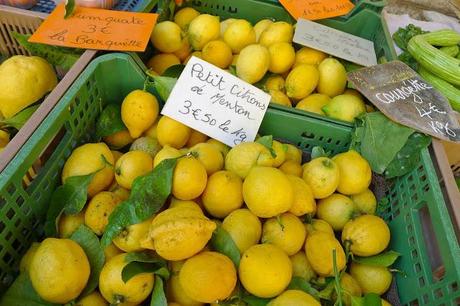
Time to brush up on the metric system...
Small size produce can be purchased in a "barquette" (small container)
In the end, I can spend hours, (and even days) explaining how things work in France to my students, and it would not be enough. There will always be a rule or a custom we have not discussed, that will throw them for a loop when they first encounter it, and then what? Can you guess what these signs mean? (Answers can be found at the end of this post...)
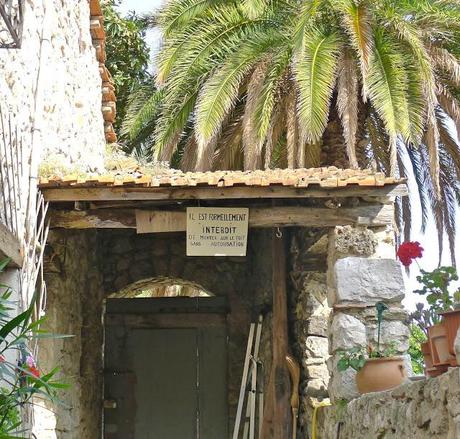
What happens in Gorbio [almost] stays in Gorbio...
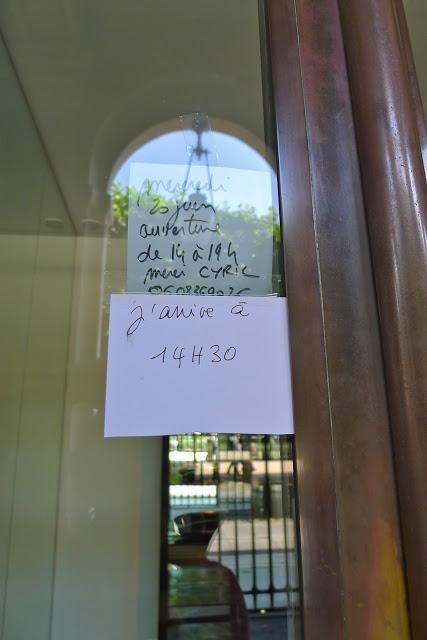
Palais Royal, Paris
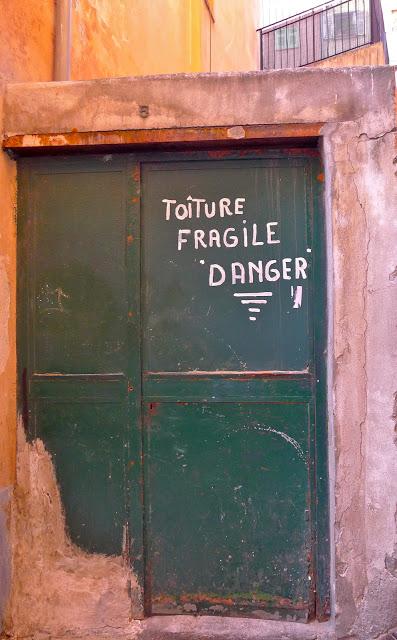
Nice, Vieille Ville
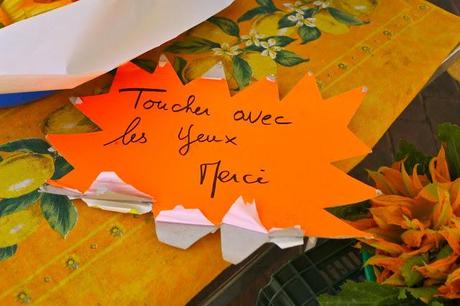
Marché Saleya, Nice
And then I realize that it is ok. I can't possibly prepare my students for every situation they will encounter while visiting my homeland. At some point, they will have to improvise, and go with the flow. Isn't this what traveling is all about? Discovering a new culture; seeing different things; being surprised and challenged? What an adventure! Isn't this worth feeling off-kilter once in a while as we are learning new rules, and a new way of life?
And truth be told, la Belle France, so traditional, so familiar to so many people, so... predictable... is so good at playing hard to get; at shaking things up. France is never boring: Just when you thought you had her all figured out, she may still surprise you... Et c'est très bien comme ça (that's a good thing.)
A bientôt.
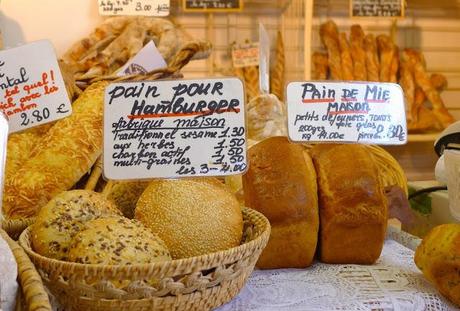
Artesanal buns for Frenchi-fied hamburgers...
Menton
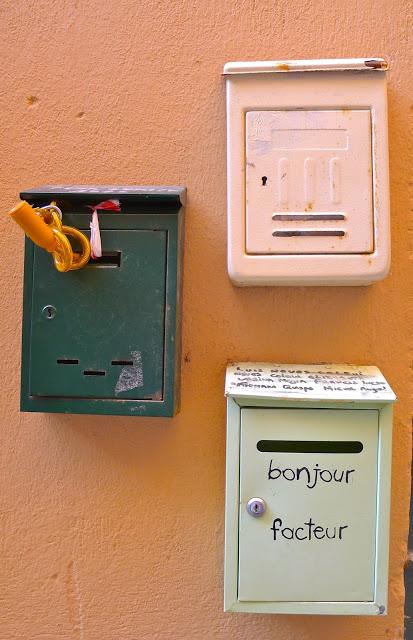
Nice, Vieille Ville
All photos by French Girl in Seattle Please do not use without permission. (1) Refers to the members of the venerable Académie Française, a true French oddity, created by the Cardinal of Richelieu in the 17th century.
From the photos in the last section of the post:
"Il est formellement interdit de monter sur le toit sans autorisation." It is strictly prohibited to climb on the roof without authorization (Read more about "interdit" and other negative words in the French language here.)
"Mercredi 20 juin. Ouverture de 14H00 à 19H00. Merci. Cyril (...) J'arrive à 14H30." Wednesday, June 20. Open from 2:00pm to 7:00pm. Thank you. Cyril (...) I will be back at 2:30pm.
"Toiture fragile. Danger." Fragile roof. Danger.
"Toucher avec les yeux. Merci." Touch with your eyes only. Thank you. (In many French shops and boutiques, it is not appropriate to touch the merchandise without asking for a salesperson's help first. This goes for children AND grown ups too!) Last photo:
"Bonjour Facteur." Good morning, Mailman. (Bonjour. Bonjour. Bonjour. Arguably the single most important word in French life.)

